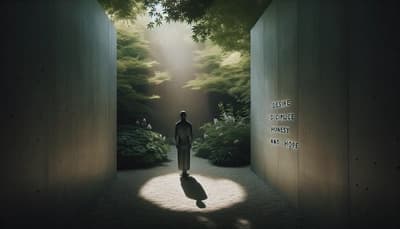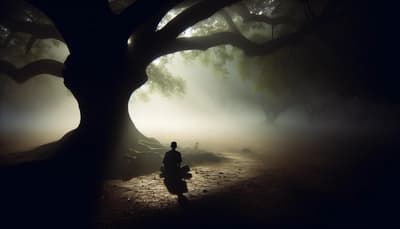Wisdom & Philosophy

The Mask of Identity: How to Observe the Ego and Remember Your Real Self
Some days, the voice inside feels rehearsed, as if wearing a mask. Here, we gently notice the layers—ego, story, protection—and listen for what waits beneath.

What Is Consciousness? Meeting the Observer Within
What is consciousness? Perhaps you’ve felt the pulse of awareness behind your thoughts, wondered how to rest in pure consciousness, or puzzled over the idea of an observer self. If you’ve ever tried to abide as the self beneath all experience, you are not alone.

Self-Restraint as a Living Art: Understanding, Walking the Middle Path, and Nurturing Inner Honesty
What is self-restraint, really? Is it strict denial, or the soft art of choosing with care, even while desires surge and old habits call? For those who long to walk the middle path, the challenge is not simply in resisting, but in sensing a more honest way of meeting oneself—a gentler integrity that feels both strong and alive.

Eightfold Path: Moving Quietly Toward an Inner Way
teaser

The Role of Silence in Eastern Philosophy: Between Words and Knowing
Sometimes, the deepest truths in eastern philosophy hover just outside the boundaries of speech. In silence, the play of dharma, maya, and possibility gently reveals itself—a presence felt only when the mind is quiet enough to notice.

How to Build a Healthy Sense of Self: Nourishing Essence Beyond Ego
How do you build a healthy sense of self while the world whirls with expectations and old stories? The search for who you are—beneath the noise, beyond labels—can feel both bewildering and quietly urgent. This reflection will gently explore how to build a healthy sense of self, what it means to let go of rigid identities...
